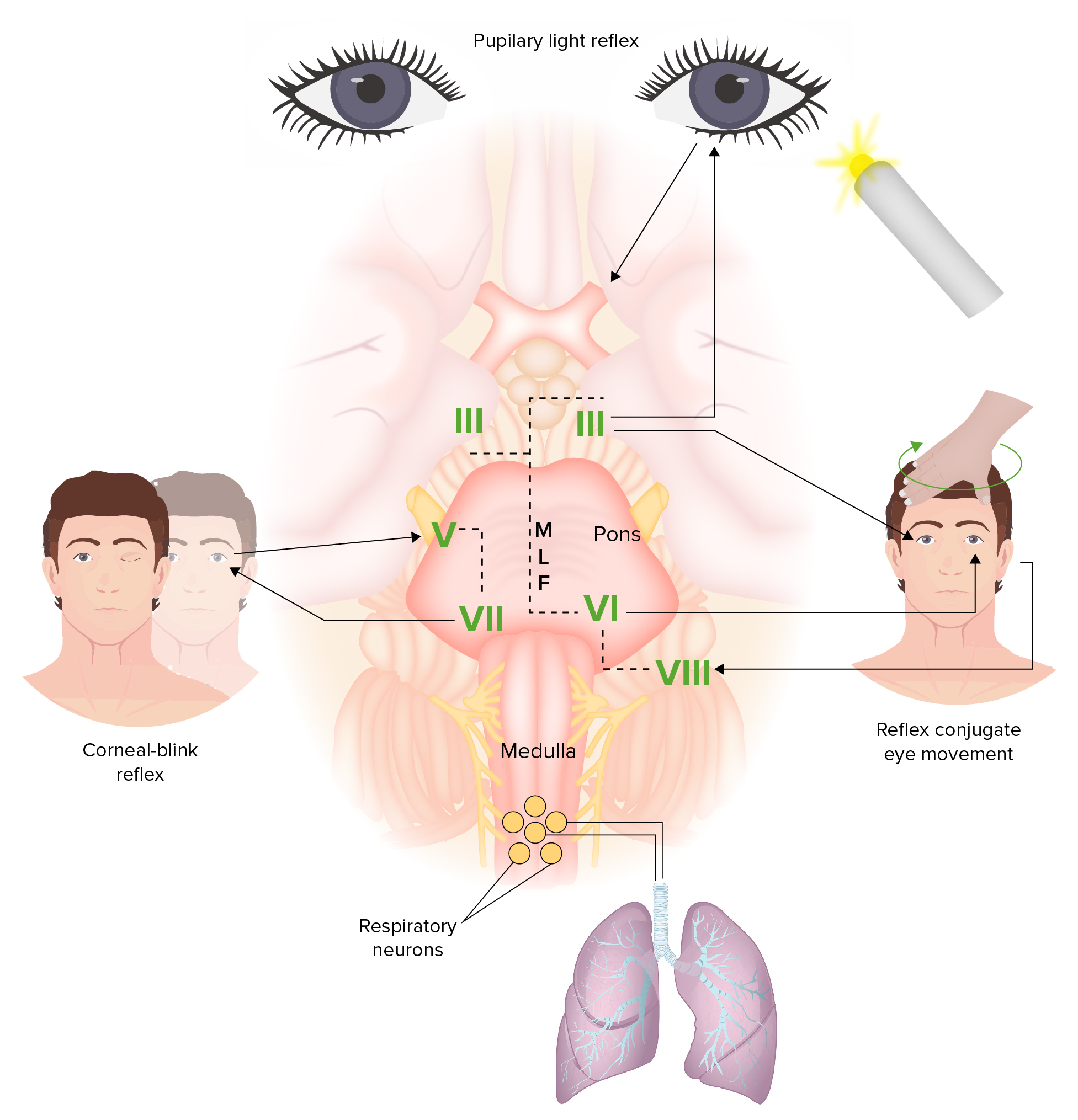Playlist
Show Playlist
Hide Playlist
Minimally Conscious State
-
Slides Minimally Conscious State.pdf
-
Reference List Clinical Ethics.pdf
-
Download Lecture Overview
00:01 Another condition that you might encounter, especially when there's been hypoxic injury to the brain is going to be minimally conscious state. 00:10 So these are patients where they do not meet criteria for persistent vegetative state. 00:14 It's not PVS. 00:16 So there's some consciousness, some awareness, but it's very minimal. 00:23 So here, this severe alteration in consciousness might allow them to have some demonstration of interaction with the environment, they might do visual tracking, so they can use their eyes to track a finger, they might be able to follow simple commands, so wiggle your toes or squeeze my hand, they might be able to signal yes or no to simple question, may not be that they're always accurate and how they answer the questions. 00:51 But whether it's a nod, whether it's a blink, whether it's even even potentially mouthing the words, some signal that they've received the question and they're trying to respond to it. 01:03 Some patients in minimally conscious state will have intelligible verbalizations may be minimal, but but they are able to say a few words. 01:12 And some patients may have some purposeful behavior, it's generally going to be pretty restricted. 01:20 But they can to sort of demonstrate they're trying to to accomplish something, there's something working in their brain to follow through on a purposeful behavior. 01:30 It's still a pretty devastating neurologic condition to be in. 01:36 And, for these patients that are minimally conscious state, they may demonstrate sleep wake cycles, when they're sleeping, they may show both slow wave and rapid eye movement sleep. 01:46 So there's some suggestion that the brain is working in some way. 01:51 Some patients will say, this is a condition now if I'm in that state, I would want to be kept alive and, continue with life sustaining treatments, other patients would say, I have such minimal interaction with my environment, I may not want to be sustained on life support, or life sustaining treatments, if we're in a minimally conscious state. 02:11 So again, it's important to know what, what MCS is to decide how you're going to make decisions about life sustaining treatment.
About the Lecture
The lecture Minimally Conscious State by Mark Hughes, MD, MA is from the course Ethical Considerations in Palliative Care.
Included Quiz Questions
What is the difference between a persistent vegetative state and a minimally conscious state?
- A patient in a minimally conscious state may intermittently demonstrate limited interaction with the environment unlike a patient in a persistent vegetative state.
- A patient in a minimally conscious state demonstrates extensive interaction with the environment unlike a patient in a persistent vegetative state.
- A patient in a minimally conscious state meets the criteria for a persistent vegetative state but does not respond to stimuli.
- A patient in a minimally conscious state meets the criteria for a persistent vegetative state but does not have a sleep-wake cycle.
- A patient in a minimally conscious state meets the criteria for a persistent vegetative state but does not have hypothalamic function.
Customer reviews
5,0 of 5 stars
| 5 Stars |
|
5 |
| 4 Stars |
|
0 |
| 3 Stars |
|
0 |
| 2 Stars |
|
0 |
| 1 Star |
|
0 |




